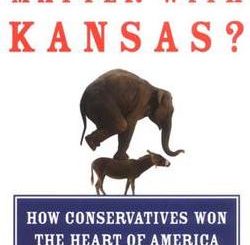On the Tories and Britain’s minorities

In the current New Statesman there is an article by Tomiwa Owolade, “a New Statesman contributing writer and the author of the forthcoming This is Not America“, on the notion advanced by the lawyer Jolyon Maughan that the Conservative party might not be ready for a leader who was not White. He was widely criticised for this comment, made on Twitter and then deleted, including from Sunder Katwala who said it resembled a notion that had been important in holding back ethnic minority leadership in the past: “I’m not racist, but a lot of others in my party are”. The article also points to the Independent’s Nadine White, who had tweeted “can you imagine a Black or Asian person leading the Conservative Party?”. One of my Asian friends had remarked on Facebook that the Tories would never let “a P**i, even a House one” be its leader (in regard to Sajid Javid). As things stand, Rishi Sunak and Kemi Badenoch are still in the race (the other remaining candidates being Tom Tugendhat, Liz Truss and Penny Mordaunt).
Owolade reminds us that the first ethnic minority PM, the first and second female PMs, the first, second and third brown chancellors of the Exchequer and the first and second brown Home Secretaries have all been Tories. However, the “first ethnic minority PM”, Benjamin Disraeli, was in fact a white Christian. He was of Jewish origin, but in the 19th century a Christian of Jewish origin was a Christian. The idea that they remained “really Jewish” even to the next generation or the one after it started to gain traction much later, reaching its peak in Nazi Germany. If his race would have been an issue, he would never have been able to make a career in politics, much less become PM. Meanwhile, Labour had yet to elect a female leader, but under Tony Blair had women in a number of other Cabinet positions including some that no woman had occupied before including secretaries of state for trade and industry and for Scotland and Northern Ireland. He also appointed the first female government Chief Whip.
He argues that this perception “justifies the racist hostility directed against many prominent conservative politicians”:
In aligning themselves with the party, so the argument goes, they have fundamentally betrayed their identity. The nature of the insults that someone like Badenoch receives reflects this dynamic – she is called a coon, a house negro, and so forth, by many people who strangely also call themselves anti-racist. In reality, political allegiances are more complex: they don’t reflect someone’s identity but their values, and this cuts across race and ethnicity.
I don’t know who is calling Kemi Badenoch these names — whether they are white or not, as their acceptability would be very different — but what they refer to is that she gets plaudits for merely being a Black woman in a position of power while not defending other Black people and actually colluding with a government that fosters their oppression. While it’s true that Labour governments have passed racist legislation and pandered to the racist popular press, the present government is the one that has deported Black British citizens who had every right to be here to Caribbean countries they left as children, decades ago and which boasted of creating a “hostile environment” in which you could not even rent a room unless your immigration status was settled as well as obstructing married couples from settling in the UK, even if they had a British child. It’s not racist to expect a minority ethnic politician to have some loyalty towards others of his or her own background, much as we expect our fellow citizens not to betray their country — to do so is a crime — and it is not the same as assuming they are “all the same”.
While nobody on an MP’s salary is poor, these wealthy Tory MPs are certainly not representative of Britain’s ethnic minorities. They were not elected by them and are not accountable to them. They show that local Conservative associations are willing to select Black and Asian candidates and that Tory voters will vote for the colour of the ribbon, not the colour of the wearer’s skin, which at least shows some progress, but working-class minority-ethnic people still do not feel represented by the Tory party and still perceive them, often rightly, as actively hostile to them and their interests. It’s no surprise that they reflect this perception in their language or that they might feel that our first non-white PM is not one of them.
At the moment, the front-runner in the leadership race is Rishi Sunak and some of his opponents (including some that have been eliminated) have criticised him for being a tax raiser and a high spender. Matt Goodwin notes that if chosen, he will become the first PM to be on the Sunday Times Rich List (number 222); he is in the top 0.001% of the world’s richest, all the while “raising the overall tax burden on British voters to its highest level since the 1950s“. Do these people not remember that Sunak’s time as chancellor coincided with the height of the Covid pandemic, during which businesses were shuttered countrywide and people had to be paid to compensate them for being unable to work? Goodwin thinks his record and his wealth won’t play well in the Red Wall and among older, provincial lower-middle-class voters, where he’s accused of disloyalty to Boris Johnson, yet those same voters elected a Tory party led by Old Etonians with no understanding of what life is like for ordinary people. I thought it was the “politics of envy” to be suspicious of someone because they were very rich. Aren’t we supposed to call those sorts of people wealth creators now?
I’m no fan of Sunak and hope that whoever wins this contest does not survive a general election. But I also would quite like it if the next Labour PM doesn’t take over a country that lies in ruins from a blindly ideological PM who insists on slashing spending to cut taxes for the wealthy when there is a major cost-of-living crisis and unprecedented pressures stemming from climate change. Sunak’s record shows that he’s capable of thinking pragmatically, of putting the free-market ideology on the back burner for long enough to help the country through a crisis. Even General Pinochet could do that; his opponents put themselves to the right of the dictator, economically, by criticising him for that. Whether the grass-roots Tory party will vote for a rich Asian man, it’s just possible that a populace that can name something he has done for them might.


